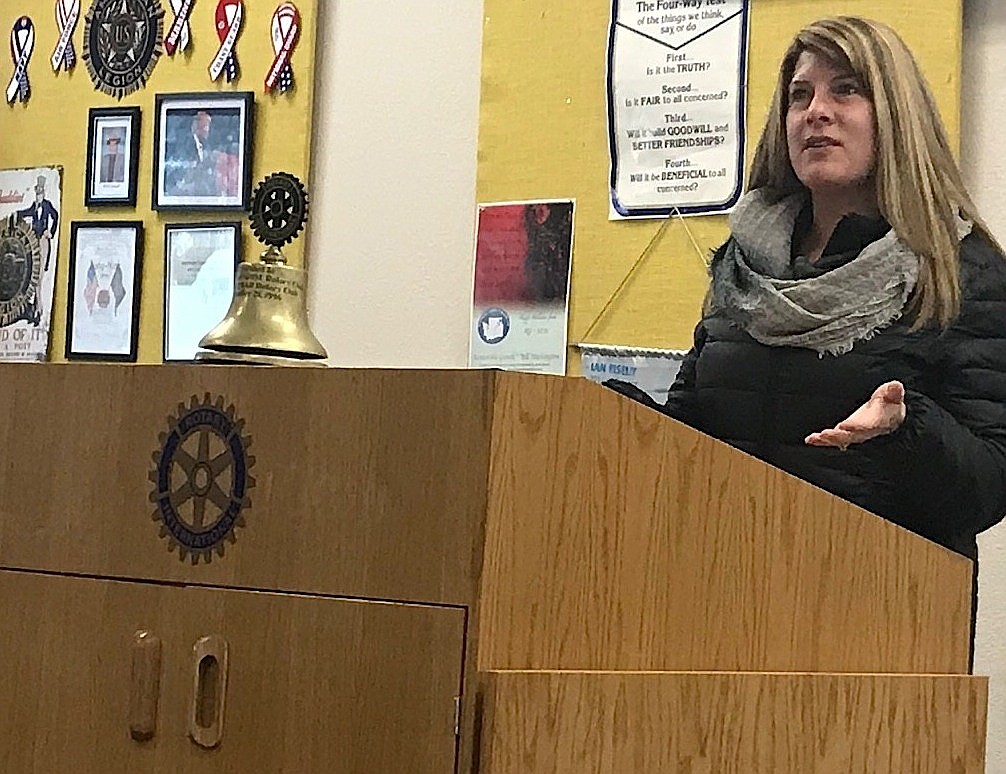Duty of the Decade
By BRIAN WALKER
Staff Writer
COEUR d'ALENE — The countdown to the 2020 Census — and educating the public on why the population count and participation is critical — is in full swing.
Mindy Thorp, hired last October by the U.S. Census Bureau as the project's partnership specialist for North Idaho, has been speaking to community groups about Census Day, which is April 1, 2020, and job opportunities with the federal agency.
"The purpose of the 2020 Census is to conduct a census of population and housing and disseminate the results to the president, the states and American people," Thorp told The Press. "The goal is to count everyone once, only once and in the right place."
The Census, mandated by the Constitution, has taken place every 10 years since 1790.
The count determines each state's number of representatives in Congress, allocation of billions of dollars in funding for federal programs, the boundaries for voting and school districts and other decisions that affect local governments.
Businesses also depend on the data to make decisions about where to locate, whom to hire and how much to invest where. Residents use the data to support community initiatives involving legislation, quality of life and consumer advocacy.
Based on the latest Census data, Idaho receives more than $2.4 billion each year — $1,473 per Idahoan counted — through federal programs.
Nationwide, an astonishing $675 billion is distributed annually based on population for programs related to transportation, schools, senior centers, housing and medical assistance.
This Census will offer a new method — online — for citizens to respond to the questionnaire, Thorp said.
Starting in mid-March 2020, residents will receive an invitation in the mail to respond online, over the phone or on paper.
"We are excited that people have a new way to respond," Thorp said.
Participation is mandatory.
The public's privacy is protected — with no exceptions — as it's against the law for the Census Bureau to publicly release your responses that in any way could identify you or your household. Also, by law, answers can't be shared with any other government agency.
Thorp said confidentiality is perhaps the most common concern people have about the Census.
In 1982, the U.S. Supreme Court confirmed that even addresses are confidential and can't be disclosed through legal discovery or under the federal Freedom of Information Act.
Answers can be used only to produce statistics. They can't be used against the public in any way, she said.
Thorp said North Idaho had an initial participation rate of about 80 percent in the 2010 Census, leaving about 30,000 residents who needed a follow-up by a Census enumerator to obtain a more accurate count.
If a similar number of people in the region are not counted in the 2020 Census, that could translate into $450 million in lost funds for North Idaho during the next 10 years.
Counting children under 5 was the trickiest population to capture nationally in the 2010 Census, Thorp said. An estimated 5 percent of that population, or about 1 million people, weren't counted.
The Census counts everyone where they live (and sleep) most of the time, even if the living arrangement is temporary or the parents of the child do not live there. If the child spends equal amounts of time between two homes, they are counted based on where they stayed on Census Day. Thorp recommended parents and caregivers coordinate when possible to avoid counting the child twice.
Thorp said she was responsible for developing Census partnerships with governments, community organizations, faith-based groups and businesses.
"I would appreciate any speaking engagement opportunities," she said, adding that groups can arrange for such presentations by emailing melinda.g.thorp@2020 census.gov.
Thorp has been working with individuals including David Callahan, Kootenai County's community development director.
"The Census has an enormous impact on how much funding each state receives through the federal government," said Callahan, referring to why he agreed to be the county's liaison to the U.S. Census Bureau.
Thorp said it will take everyone's part to ensure as accurate of a count as possible. Residents and organizations are encouraged to reach out to other hard-to-count populations such as rural communities, low income and the homeless.
The hiring process for the 2020 Census at www.2020census.gov/jobs is underway. Applicants must be a U.S. citizen, at least 18 and pass a background check.
The operations positions pay between $13 and $15 per hour. They offer weekly pay and flexible hours.
The jobs will start as early as the end of July and continue off and on through the end of September 2020.
"The jobs can be as flexible as an applicant needs, but some work will need to be done when people are home, such as evenings and weekends," Thorp said.

